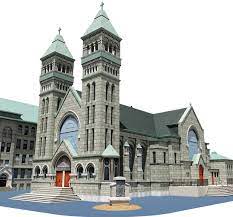James F. Keating, an associate professor of theology at Providence College, wrote a wonderful piece at First Things that is worth a read.
As you likely know, I worked with The Cardinal Newman Society for many years and believe their mission to restore Catholic education is crucial. As a parent of five children, this is obviously on my mind quite a bit.
In short, I believe the answer to who killed the Catholic University, I’d say it was the cowardice of the bishops after Ex Corde Ecclesia. It sometimes seems they never fail to fail, do they?
Make no mistake they get a strong assist from the Jesuits as well. But the cowardice from the bishops sealed the fate of Catholic education in this country.
I remember when I was with The Cardinal Newman Society called around to local theology departments at large Catholic unversitites and asking if their theology professors has received the mandatum from the local bishop authorizing them to teach Catholicism.
I was literally laughed at by several theology chairs.
More than thirty years ago, John Paul II issued Ex Corde Ecclesiae, his apostolic constitution on Catholic universities. Although in some respects an updating of Vatican II’s Declaration on Christian Education, the all-but-forgotten Gravissimum Educationis, John Paul’s document was meant to inspire a renewal of authentic Catholic education in troubled times. He adopted what the late John O’Malley called Vatican II’s “invitational” style. Rather than denouncing abuses, the pope sought to invite, perhaps re-invite, Catholic professors and administrators to the adventure of Catholic higher education.
The adventure lies in sustaining an educational tradition that unites features of the intellectual life commonly thought antithetical: on the one hand, reason’s unencumbered search for truth; on the other, faith’s “certainty of already knowing the fount of truth,” the Son of God, the Logos of everything that exists. This adventure has an institutional aspect, as well. It unites the freedom proper to an institution of higher learning with the fact that any university worthy of the adjective “Catholic” derives its vitality from “the heart of the Church.”
By this phrase, John Paul reminds us of the historical fact that the very concept of the university arose in the Middle Ages, out of the Catholic conviction that faith and reason belong together. More importantly, he wished to make a substantive point: The education a Catholic university offers is informed by what the Church has learned from millennia spent in contemplation of the God of Jesus Christ. Catholic universities are “called to explore courageously the riches of Revelation and of nature so that the united endeavor of intelligence and faith will enable people to come to the full measure of their humanity, created in the image and likeness of God, renewed even more marvelously, after sin, in Christ, and called to shine forth in the light of the Spirit.” A Catholic university enables the local Church to pursue an “incomparably fertile dialogue” with the surrounding culture, one that touches on all aspects of human flourishing. It does so by producing students who bring to their professional lives and civic responsibilities a view of the whole of human life and the created order shaped by Christian faith. Moreover, John Paul continues, the scientific and humanistic research done within a truly Catholic university enhances the Church’s engagement with the wider society, allowing lay and clerical leaders to guide and influence governmental policies, economic arrangements, and new technologies so that they accord with what is truly good for human beings.
Ex Corde is a powerful document promulgated by a sainted pope. It should have excited and fortified every religious order, every bishop, every Catholic lay person entrusted with the leadership of a Catholic college or university. But it did not. To re-read it three decades after its promulgation is an experience more bitter than sweet. John Paul’s words fell on bad soil in America. By the time of the document’s release, Catholic higher education was surveilled by plucking birds, filled with stony rocks, and choked by suffocating weeds. There was little chance for Ex Corde to bear good fruit.
You can read the entire thing at First Things.

Leave a Reply